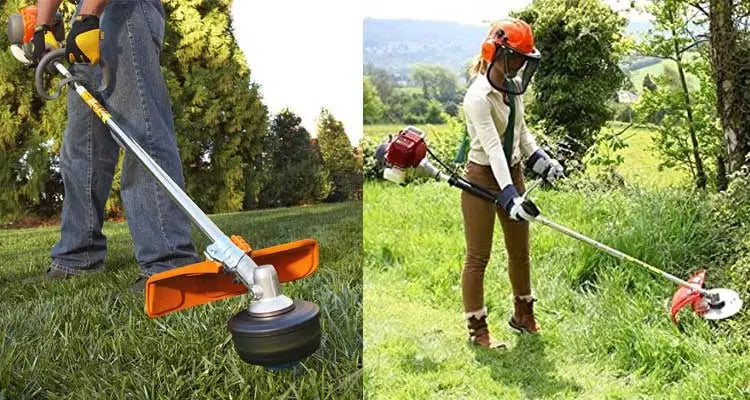
STOP USING THE WRONG TOOL! KNOW THE REAL DIFFERENCE BETWEEN STRING TRIMMER AND BRUSH CUTTER
Are you tired of battling overgrown grass, weeds, or thick brush in your yard? Choosing the right tool for the job can save you time, money, and frustration. But with so many outdoor power tools available, it’s easy to confuse a string trimmer and a brush cutter. While they may look similar at first glance, these tools serve very different purposes.
In this guide, we’ll break down the key differences between Livowalny string trimmers and brush cutters, explain their unique strengths, and help you decide which one is right for your yard care needs. Let’s dive in!
What Is a String Trimmer?
A string trimmer (also called a weed eater or weed whacker) is a lightweight, handheld tool designed for precision trimming. It uses a rapidly spinning string to cut through soft vegetation, such as:
- Grass around fences, trees, and garden edges.
- Overgrown weeds in tight spaces.
- Lawn edges for a polished finish.
What Is a Brush Cutter?
A brush cutter is a heavy-duty tool built to tackle thick, stubborn vegetation that a string trimmer can’t handle. Instead of string, it uses a metal blade or reinforced cutting disc to power through:
- Dense brush, saplings, and thorny plants.
- Overgrown fields or wooded areas.
- Tough weeds with thick stems (e.g., bamboo, ivy, or blackberry bushes).
Key Differences: Brush Cutter vs String Trimmer
1. Cutting Capacity
- String Trimmer: Handles grass and soft weeds.
- Brush Cutter: Cuts through thick brush, small trees, and dense undergrowth.
2. Blade vs. String
- String trimmers use replaceable nylon line for safety and precision.
- Brush cutters use steel blades or carbide-tipped discs for brute force.
3. Power Source
- String trimmers are often electric (battery/corded) for lightweight use.
- Brush cutters are usually gas-powered for heavy-duty tasks.
4. Weight and Maneuverability
- String trimmers are lighter and easier to handle for detailed work.
- Brush cutters are bulkier but built for rugged terrain.
5. Price
- String trimmers are generally more affordable.
- Brush cutters cost more due to their heavy-duty components.
Which One Should You Buy - Brush Cutter vs String Trimmer
Ask yourself these questions:
1. What’s your yard size?
Small urban lawn? A string trimmer is sufficient. Acreage with thick overgrowth? Opt for a brush cutter.
2. What are you cutting?
A string trimmer is ideal for soft grass and weeds, but when dealing with thick brush, saplings, or tough vines, a more powerful brush cutter is the better choice.
3. How often will you use it?
For occasional touch-ups, a lightweight trimmer is sufficient, while frequent heavy-duty jobs call for investing in a brush cutter.
4. How will you store the tool?
String trimmers are compact and easy to store in small spaces. Brush cutters require more storage space and proper maintenance for longevity.
5. What’s your budget?
String trimmers are budget-friendly for casual users. Brush cutters require a higher investment but justify the cost for demanding tasks.
Understanding the difference between a string trimmer and a brush cutter ensures you pick the right tool for your yard’s challenges. If you’re still unsure, consider renting both to test their performance on your property. Ready to conquer your yard? Share this guide with fellow DIYers!






